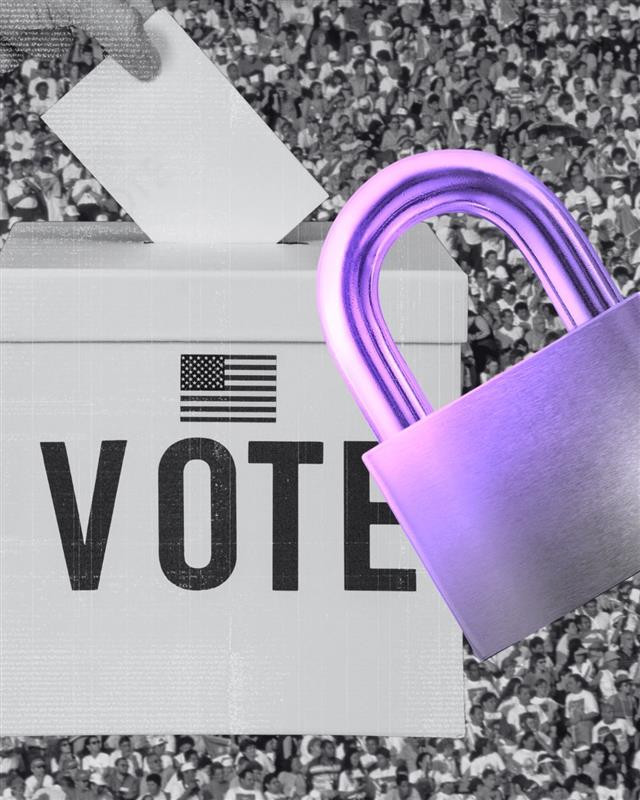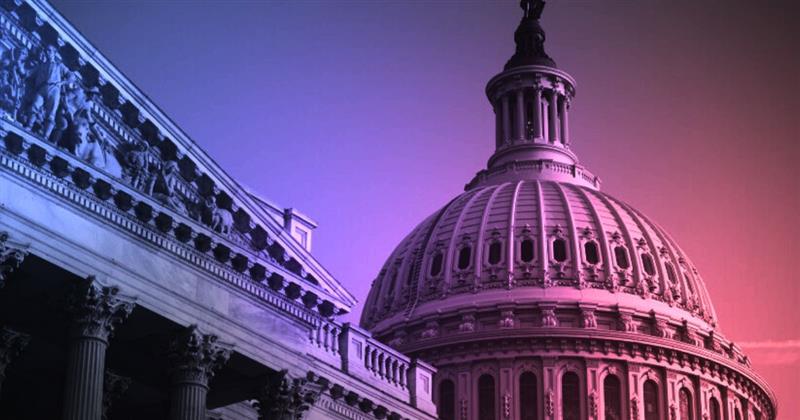What are independent voters asking this week?
Am I the only one who’s getting tired of the same old same old?
65% of Americans feel exhausted by politics, with 83% of independents prioritizing bipartisan cooperation. Younger generations, particularly Millennials and Gen Z, are increasingly rejecting party labels, looking for something new.
Nope. You’re in very good company.
If you’re feeling politically burned out, you’re not imagining it. According to Pew Research, 65% of Americans say they feel exhausted when thinking about politics
That’s not just a trend—it’s a transformation.
Independent voters are tired of being told they have to pick between two parties that often feel more interested in scoring points than solving problems. The Independent Center’s latest polling shows that 83% of independents want leaders who prioritize bipartisan cooperation over partisan wins.
So what’s driving this fatigue?
It’s partly generational. Younger Americans—especially Millennials and Gen Z—are far more likely to identify as independent. Pew’s 2025 data shows that 52% of Millennials and 43% of Gen Z voters reject party labels.
That’s why the 2025 New York City Democratic mayoral primary was such a wake-up call.
In a stunning upset, State Assemblyman Zohran Mamdani—a progressive outsider—defeated former Democratic establishment Governor Andrew Cuomo.
Cuomo, once seen as the comeback candidate, represented the old guard. Mamdani represented change. Mamdani’s coalition of younger, more independent-minded voters helped him surge past Cuomo in the final rounds.
This wasn’t just a win for progressives—it was a signal. Voters are hungry for alternatives. They’re tired of being told their only choices are red or blue. They want leaders who listen, policies that work, and a system that reflects the complexity of their views.
The challenge now is whether our political system can keep up. Independent voters are sending a clear message: they’re tired, but they’re not giving up. They’re not asking for perfection—they’re asking for representation. And if the parties don’t respond, they may find themselves left behind.
So no, you’re not the only one. And maybe, just maybe, that’s the beginning of something better.
What’s Happening with the Epstein Files? A Procedural and Political Breakdown
The Epstein Files Transparency Act, introduced by Reps. Massie and Khanna, aims to compel the DOJ and FBI to release documents related to Jeffrey Epstein and Ghislaine Maxwell. Despite the DOJ’s ongoing document release, lawmakers criticize the process as incomplete and are pushing for full transparency, citing public interest and accountability. The release process is complicated by legal considerations, including victim privacy and ongoing investigations.
The controversy surrounding the release of government files related to Jeffrey Epstein, the late financier and convicted sex offender, has resurfaced in Congress, reigniting bipartisan calls for transparency. At the heart of the debate is the question of how much information the public should be allowed to see—and what legal and procedural barriers stand in the way.
Congressional Action
In early September 2025, Rep. Thomas Massie (R-KY) and Rep. Ro Khanna (D-CA) introduced the Epstein Files Transparency Act, a bipartisan bill aimed at compelling the Department of Justice (DOJ), FBI, and various U.S. attorneys’ offices to release documents related to Epstein and his associate Ghislaine Maxwell. The bill seeks to make files publicly available in downloadable form, including records mentioning individuals, organizations, and travel logs, as well as internal communications about the investigations and any alleged mishandling of evidence.
To bypass congressional leadership, Massie and Khanna are using a discharge petition, a procedural tool that allows a bill to be brought to the floor if it garners 218 signatures. As of early September, they had secured support from all House Democrats and at least 12 Republicans.
Legal and Procedural Challenges
The DOJ has already begun releasing documents in response to a House Oversight Committee subpoena, but lawmakers have criticized the initial batch as incomplete or redundant. Rep. Robert Garcia (D-CA), the committee’s ranking Democrat, stated that most of the tens of thousands of pages handed over contained no new information.
The release process is complicated by legal and ethical considerations. The DOJ and House Oversight Committee are working to redact sensitive content, including the identities of victims and any material that could interfere with ongoing investigations. According to DOJ policy and the Privacy Act of 1974, disclosures about living individuals under investigation are restricted. However, Congress is not bound by these limitations and can choose to release such information.
Maxwell’s Appeal and Presidential Involvement
Further complicating matters is the ongoing legal appeal by Ghislaine Maxwell, who is seeking to overturn her 20-year sentence for sex trafficking. She has been subpoenaed by the House Oversight and Government Reform Committee and is negotiating terms for testimony, reportedly requesting immunity from further prosecution.
President Donald Trump, who has been mentioned in past Epstein-related documents but not accused of wrongdoing, has expressed skepticism about the transparency push, calling it a “Democrat hoax.” Nonetheless, he has asked Attorney General Pam Bondi to seek the release of grand jury materials. Federal judges have denied these requests, citing insufficient justification and the fact that much of the material has already been made public.
Conclusion
The political stakes are high. With Congress facing a looming government shutdown deadline, House leadership is under pressure to manage time and avoid politically sensitive votes. Yet, lawmakers from both parties insist that the public deserves full disclosure. “Americans want transparency, not smoke and mirrors,” Massie said in a recent statement.
In summary, the Epstein files remain a contentious issue at the intersection of law, politics, and public accountability. While legal constraints and privacy concerns complicate the release process, bipartisan momentum continues to build toward greater transparency.
Bipartisanship in Decline: Can America Rebuild Political Cooperation?
Bipartisanship in American politics is declining, driven by elite polarization, media fragmentation, and a growing disconnect between political elites and the electorate. Despite this, voters across the political spectrum express a desire for pragmatic leadership and bipartisan cooperation, particularly on issues like fiscal responsibility. While challenges remain, there is potential for rebuilding political cooperation through electoral reforms and a renewed focus on shared national priorities.
The perceived decline of bipartisanship in American politics has become a defining concern for voters across the political spectrum. Once a hallmark of legislative progress, bipartisan cooperation now appears increasingly rare, replaced by ideological rigidity and partisan warfare. This shift reflects deeper structural and cultural changes within both major parties—and a growing disconnect between political elites and the electorate.
Online political discourse, as tracked by the Independent Center, reveals a consistent theme: voters are fatigued by hyper-partisanship and crave pragmatic leadership. Discussions across platforms like r/politicaldiscussion show frustration with entrenched party interests and a yearning for representatives who prioritize problem-solving over tribal loyalty.
The Trump administration, particularly during its first term, is often cited as a turning point in the erosion of bipartisanship. While partisan tensions were already rising, Trump’s confrontational style and base-first governance strategy accelerated the divide. Executive actions—such as withdrawing from international organizations and pushing controversial cultural policies—signaled a preference for ideological purity over cross-party collaboration.
Yet, despite this political climate, polling data from the Independent Center suggests that voters still value bipartisanship. In a 2025 survey, 56% of independents and 48% of Democrats said they preferred representatives who work across party lines. Even among Republicans, 35% expressed support for bipartisan cooperation. These numbers reflect a broader desire for governance that transcends party boundaries and focuses on shared national priorities.
One surprising area of bipartisan agreement is fiscal responsibility. Reducing the national debt and deficit ranked as a top concern for 57% of Americans, with support from 47% of Democrats and 66% of Republicans. This consensus challenges the narrative that economic issues are inherently partisan and suggests a potential foundation for renewed cooperation.
However, the path to restoring bipartisanship is not straightforward. As Didi Kuo of Stanford University explains, elite polarization—driven by activists, donors, and party leaders—has created a political environment where compromise is discouraged. Voters may be moderate on many issues, but their representatives often reflect the extremes of their party’s base.
Technology and media fragmentation further complicate the landscape. Social platforms and partisan news outlets reinforce ideological silos, making it harder for citizens to encounter opposing viewpoints. This echo chamber effect deepens affective polarization—emotional hostility toward the other side—even when policy differences are relatively narrow.
Despite these challenges, there are reasons for cautious optimism. Voters are increasingly vocal about their dissatisfaction with partisan gridlock. Independent and moderate voices are gaining traction, and there is growing support for electoral reforms like ranked-choice voting and open primaries that could incentivize cross-party collaboration.
The message from voters is clear: they want leaders who listen, compromise, and deliver results. Bipartisanship may be in decline, but it is not dead. With deliberate effort—from citizens, institutions, and elected officials—America can rebuild a political culture rooted in cooperation and shared purpose.


.jpeg)


.jpg)